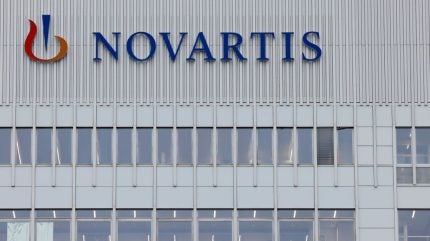
The European Medicines Agency (EMA) recently released its main concerns with Novartis’ Vijoice (alpelisib) application which led to the company withdrawing its conditional authorisation application for a group of rare genetic disorders last autumn.
In Europe, Novartis was pursuing a label for the treatment of adults and children aged two years and above with severe or life-threatening symptoms of PIK3CA-Related Overgrowth Spectrum (PROS) requiring systemic therapy.

Discover B2B Marketing That Performs
Combine business intelligence and editorial excellence to reach engaged professionals across 36 leading media platforms.
In an updated withdrawal assessment report that was released earlier today (14 March), the EMA explained that the long-term safety profile of Vijoice, especially its impact on growth and development in the paediatric population, is still unknown. Furthermore, it questioned whether the assessment of tumour size was an adequate measure of patient benefit in the group of patients with the target indication.
The US Food and Drug Administration (FDA) approved Vijoice in April 2022 as the first and only treatment for select patients with PROS. In May 2019, the regulator also granted approval to alpelisib, under the brand name Piqray. The treatment was made available for postmenopausal women and men with hormone receptor-positive, human epidermal growth factor receptor-2 negative (HR+/HER2-), PIK3CA-mutated advanced or metastatic breast cancer.
PROS are a group of genetic disorders in which mutations occur in the PIK3CA gene, causing overgrowth of certain body parts. Vijoice treats the condition by inhibiting the PI3K/Akt signalling pathway.
In October 2023, Novartis withdrew its EU marketing authorisation application for Vijoice following an EMA evaluation. At the time of withdrawal, the agency reported concerns that the clinical data, provided from the EPIK-1 study (NCT04285723), was not sufficient in demonstrating the exact benefit from reduction in tumour size.

US Tariffs are shifting - will you react or anticipate?
Don’t let policy changes catch you off guard. Stay proactive with real-time data and expert analysis.
By GlobalDataIn a letter to the EMA released in the same month, Novartis had also expressed the need to acquire further data to support the drug’s benefit/risk assessment. Novartis submitted the initial application based on real-world evidence from a retrospective chart review study. However, the Swiss company was unable to answer all questions from the Committee for Medicinal Products for Human Use (CHMP) within the necessary timeframe. At the time, the Swiss company announced intentions to submit a new marketing authorisation application once it collects new data.
The EMA designated the drug as an orphan medicine on 26 March 2021 for the treatment of PROS. In the EU, there are currently no disease-modifying treatments available for PROS.
Update: This article was updated to accurately represent EMA feedback.




